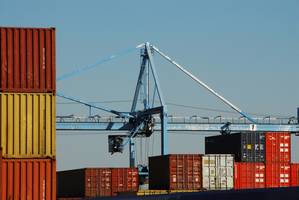Aims of the transatlantic free trade agreement – chance or risk?

- Picture: Hans Dieter Volz (pixelio.de)
The negotiations on TTIP (Transatlantic Trade and Investment Partnership), the transatlantic free trade agreement, have already started in spring 2013. But not all of the potential achievements of the – in case of implementation - biggest free trade zone in the world are being hailed by everyone. Not only the NGO-scene on both sides of the Atlantic is critical towards the agreement, consumers are also asking themselves if the high growth forecasts would really deliver what’s promised.
Is it really a new impulse on economic growth or would socio-ecologic achievements on both sides of the Atlantic be infiltrated by internationally operating large corporations?
Growth through uniform standards and less customs duties?
So far it’s expected that the contracts of the free trade agreement will be closed earliest at the end of 2014 but not later than at the end of 2015. In this context two areas are leading: On the one hand, the last remaining customs duties between the US and the EU shall be abolished. The EU and the US together account for 47% of the global economic performance. In 2011 17% of the EU-exports went to the US and 19% of the US-exports to the EU. These trade flows consist mostly of machine and transport equipment but also other industrial good, chemical products, raw materials and agricultural products form an important part of transatlantic trade. A total elimination of customs duties shall stimulate the economic growth and ensure a genuine added value of up to 545 Euro per family per year. This could be attributed for example to the fact that US-products like jeans or smartphones would become cheaper. By comparison, the added value for a US-family would even increase up to 865 US-dollar per year.
Poor consumer protection in favour of BMW and Monsanto
On the other hand, uniform norms and standards shall be introduced to for example harmonize the rules for investments, consumer protection and intellectual property on both sides of the Atlantic. Basically it’s being hoped that open borders create new economic opportunities. A study of the Center for Economic Policy Research (CEPR) compiled on behalf of the EU predicts an increase of EU-exports around 6%. The exports of the US shall even rise up to 8%. Especially branches like the automobile or the food industry would profit from a harmonization of standards, since they could sell their products on both continents additional expenses for the adjustment to the particular regional demands and restrictions.
Negotiations behind closed doors
But so far nothing is certain yet because the proclaimed growth forecasts are based on the most favourable case but there’s still no clarity about the extent of the contracts. Uncertainty is still hovering above the discussions on the negotiations. The openness and the participative character of the negotiations would have to be immensely improved. What’s hiding behind this putatively positive growth are severe consequences for democracy, social rights, consumer protection and environmental standards.
Therefore we say: TTIP - No Thanks! This agreement shall not be negociated! Transatlantic partnership should be different!
Additional links to allegedly positive aspects of the free trade agreements:
- · A critical examination on the free trade agreement by the network Seattle to Brussels: TTIP and the Fifty States: Jobs and Growth from Coast to Coast
- · A study of Bertelsmann Stiftung on growth and the labour market in connection with TTIP: TTIP and the Fifty States: Jobs and Growth from Coast to Coast
For more information on this website, see: Topics





